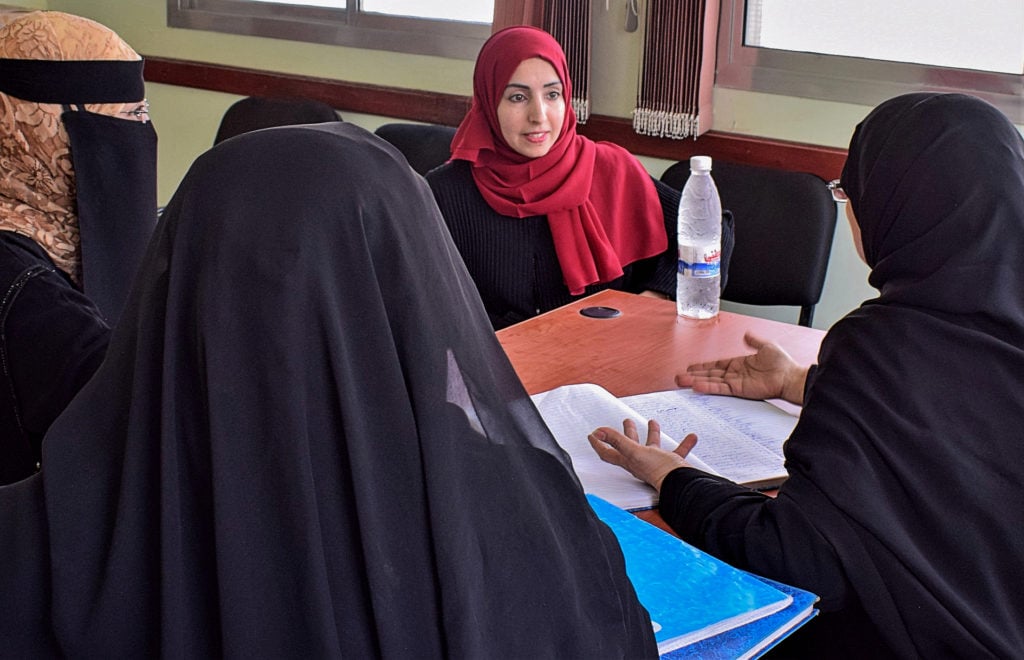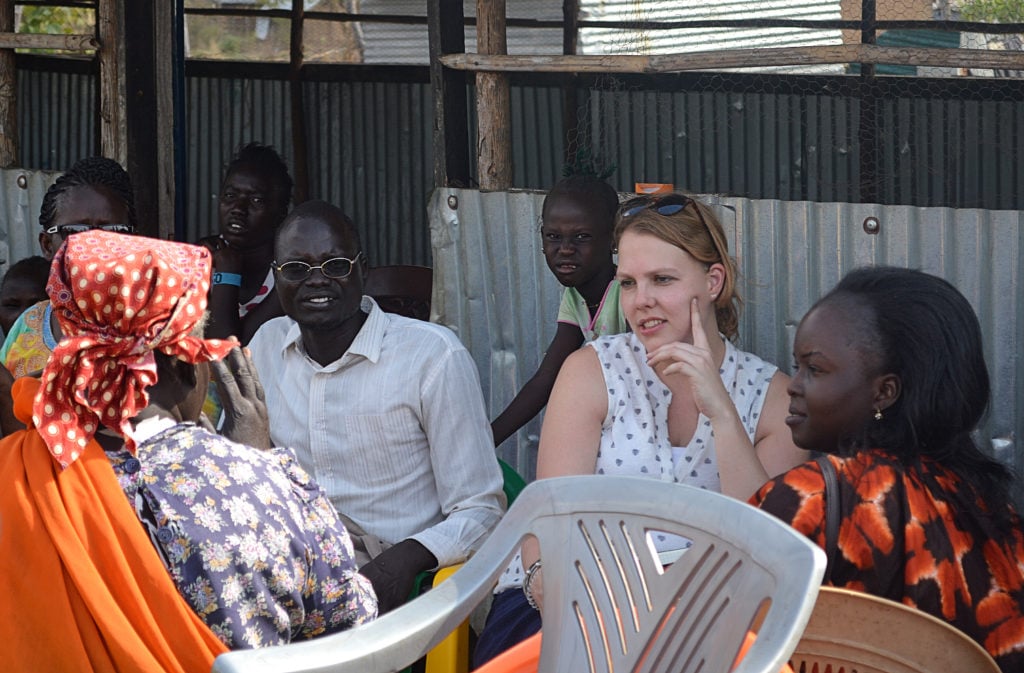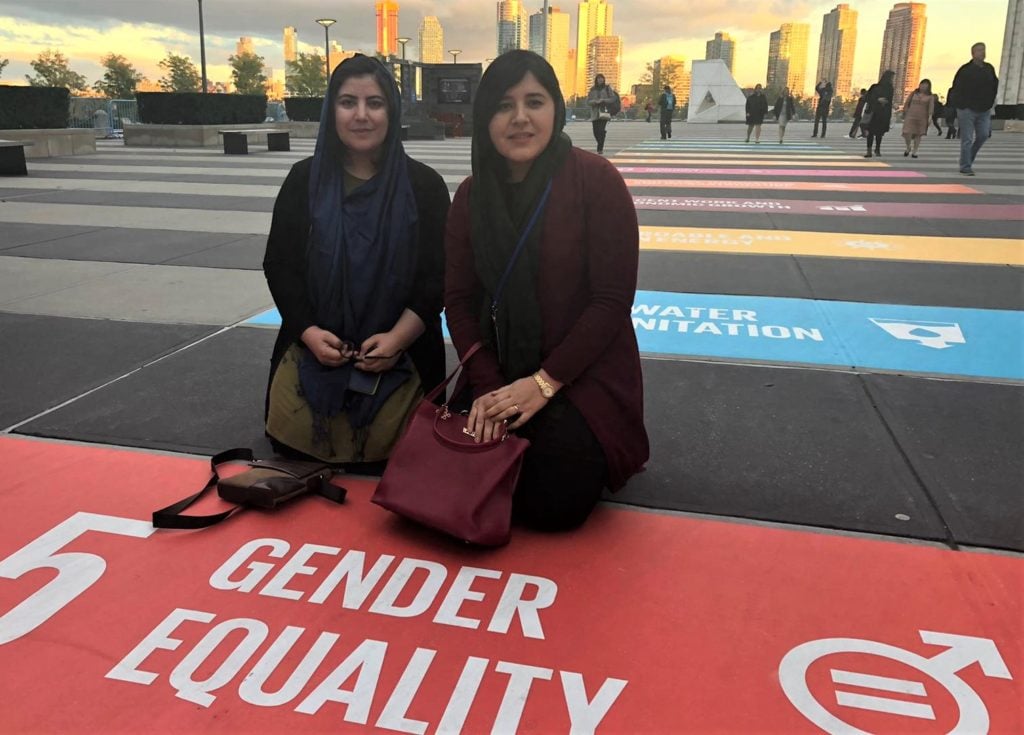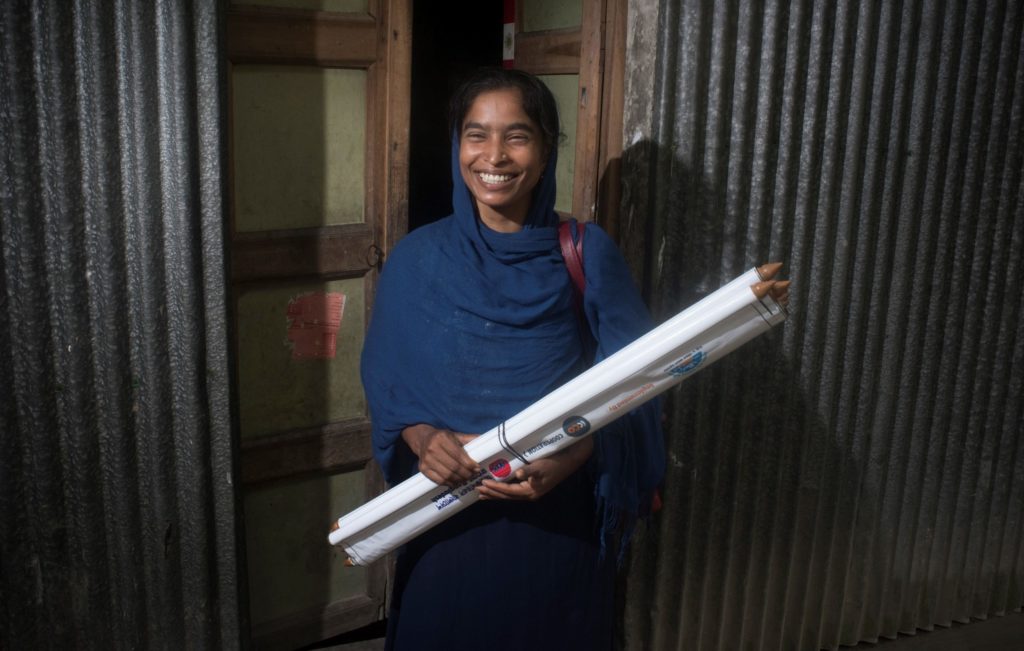Women and men worldwide choose to challenge gender bias and inequality, forging an inclusive world. On International Women’s Day, we celebrate some of these trailblazers and share their stories.
These colleagues and partners cover a wide range of civil action topics, from health care and sexual rights to economic empowerment, political participation, and food security. They are all gender equality activists.
They don’t have thousands of followers on social media. They mostly work outside the spotlight and don’t ask for a pat on the back.
We shine a light on them. Because without them, the world wouldn’t move forward. If the word wasn’t so inflated, we’d call them heroes.
Samar Al-qadi from Yemen
is a medical doctor and promotes access to reproductive health services for women in Yemen. She works for the Yamaan Foundation. “Many women came to our hospital after getting beaten up by their husbands.”

“Since my PhD and throughout my professional life, I have been trying to improve things for women. While working in a health centre in Sana’a city, many women approached me during pregnancy or after delivery. Most of them did not want more children, but their husbands did. I often talked to the husbands. I explained the importance of their wife’s health and her choice.
“Yemen will never stand on its feet if the community continues to marginalize women and to exclude them from the political and social spheres.”
Later, I was working as a resident doctor. Many women came to our hospital after getting beaten up by their husbands. I gave them medical and mental support. I drafted the medical statements needed to report cases at the police stations.
Today, I ensure that women have access to reproductive health services. I raise awareness on the issue both locally and globally. Personally, it is challenging to work in a conservative community like Yemeni society. But I pushed forward. I also financially support my sisters so they can finish university and be independent.
Women play a pivotal role in bringing justice, peace, and security. In Yemen, the ongoing conflict has put women under a lot of pressure. It further limits their economic opportunities, freedom, and access to basic services. To liberate women, it is crucial to challenge the status quo. Yemen will never stand on its feet if the community continues to marginalize women and exclude them from the political and social spheres.”
Anne Kwakkenbos from the Netherlands
is Cordaid’s Gender expert. She is based in The Hague and works with gender equality activists worldwide. “Unfortunately, the power often lies with older men. They aren’t always happy to share it. We need to challenge that.”

“We all know that lobbying for gender equality and inclusivity is more effective when you meet decision-makers face to face. With the pandemic, this became a big challenge. However, colleague lobbyists and activists worldwide were incredibly resilient and creative. We even participated in online UN Security Council meetings, for example, on sexual violence in the Central African Republic.
“Women and youth shouldn’t be silenced when it comes to peace, stability, and security. They should be the first to listen to.”
Facilitating online access for civil society members to UN meetings and missions took sweat and tears. However, going fully digital was also an opportunity to become more inclusive. Suddenly, activists from fragile and volatile places no longer had to travel by air and make long, expensive trips.
Cordaid works in fragile and volatile countries like South Sudan and Afghanistan. Gender equality is relevant for all women and men worldwide, especially here. We support women and young civil society activists in peacebuilding and decision-making processes because peacebuilding can only be successful if everyone is included.
Unfortunately, power often lies with older men, who aren’t always happy to share it. We need to challenge that constantly because everyone needs to be heard. Women and youth shouldn’t be silenced regarding peace, stability, and security. They should be the first to listen to.
I have the best job in the world. I get to work with the most amazing women, working in the most difficult circumstances. My only job is to open doors to decision-making spaces where they can express their concerns, speak up and grab opportunities to forge a more equal world.”
Nasima Omari from Afghanistan
is Cordaid’s lobby and advocacy expert in Kabul. She advocates for women’s meaningful participation in Afghanistan’s peace process. “In between our activism, we try to raise our kids, to have a life. It grinds us down and lifts us up. At least, working from home around the clock, our men now see what we do—how we fight.”

“After the world went into the COVID-19 lockdown, Afghan women worked their way around restrictions. Even more than before, we went online. Using our mobiles to mobilize women across the country. In 11 provinces, we provided internet access to women who were peace activists and gender equality promoters in their regions. We met, raised our voices, and took action. In WhatsApp groups and video calls, we denounced cases of gender violence and advanced women’s inclusion in the peace process. 24/7, 7 days a week.
“We must continue. To educate ourselves. To combine our talents. To fight domestic violence and abuse. To have a say in our country’s future. To make sure we will never go back to the dark days.”
Those of us with access to global networks took their wisdom and demands to international levels. We shared them in our campaigns for an inclusive peace process in Kabul, New York, Washington, and Doha. Breaking down barriers. Afghanistan belongs to Afghan women at least just as much as it does to Afghan men.
Online activism comes with a risk. It never stops. In between, we try to raise our kids and have a family life. To have a life. It grinds us down and lifts us at the same time. At least, working from home around the clock, our men now see what we do. How we fight. They have become our allies more than before.
We must continue. To educate ourselves. To combine our talents. To fight domestic violence and abuse. To have a say in our country’s future. To make sure we will never go back to the dark days of a fundamentalist regime of men ruling over women.”
Morsheda Khatun from Bangladesh
is a Nutrition Sales Agent. She lives and works in the Gaibandha district, one of the most underserved parts of Bangladesh. “People from my community, including men, often come to me for advice. I never experienced this before. It gives me a sense of equality in my family and society.”

“In our patriarchal society, we women are often neglected and forced to stay within the boundary of our house. Usually, we are busy with household tasks like child care and cooking. We have little involvement when it comes to making decisions. It was the same for me before I started working as a Nutrition Sales Agent (NSA) in the SONGO project.
“People from my community, including men, often come to me for advice. I never experienced this before. It kind of gives me a sense of equality in my family and in society.”
As an NSA, I sell personal hygiene, birth control, and nutrition products and provide health advice to women in my community. This has given me a new identity. People now recognise me by my name. I am no longer referred to by my father’s or husband’s identity.
My husband and other male family members now discuss with me before making any major decisions. People from my community, including men, often come to me for advice. I never experienced this before. It gives me a sense of equality in my family and society.
I was trained in nutrition and hygiene practices, business skills, and networking and became an entrepreneur. I became an icon in my community and helped men and women understand the importance of good nutrition and hygiene practices. Women become more aware of their health. They understand how being healthy can help to have a healthy baby. I feel I am inspiring others.”
SONGO stands for Sustained Opportunities for Nutrition Governance. Kurigram and Gaibandha districts, the project’s working area, are among Bangladesh’s poorest, most underserved, and most disaster-prone parts. Malnutrition rates are very high. Severe gender inequality further intensifies and increases poverty and fragility. Mothers lack basic nutrition and nutrition awareness, resulting in the impaired growth of their babies (stunting). The project improves nutrition by engaging women as Last Mile Sales Agents for behaviour change and door-to-door product availability.